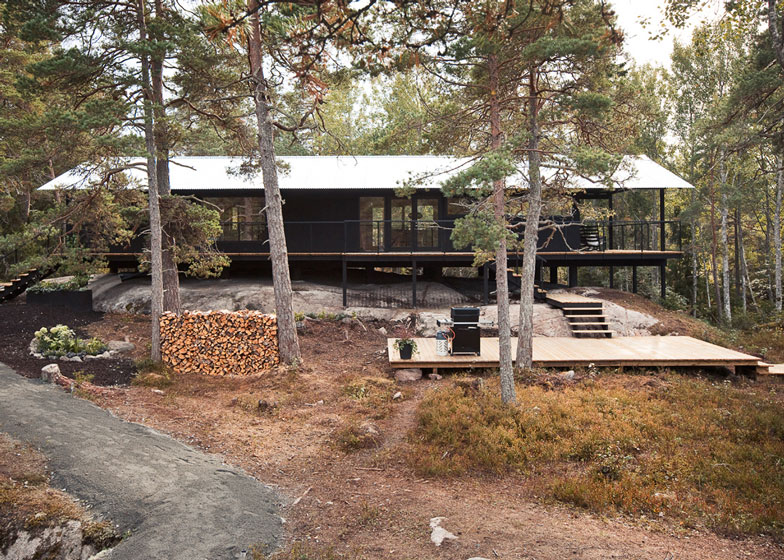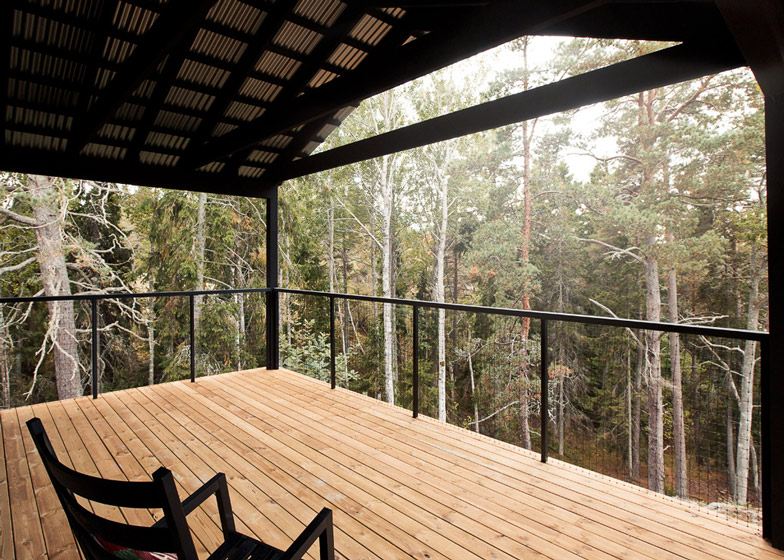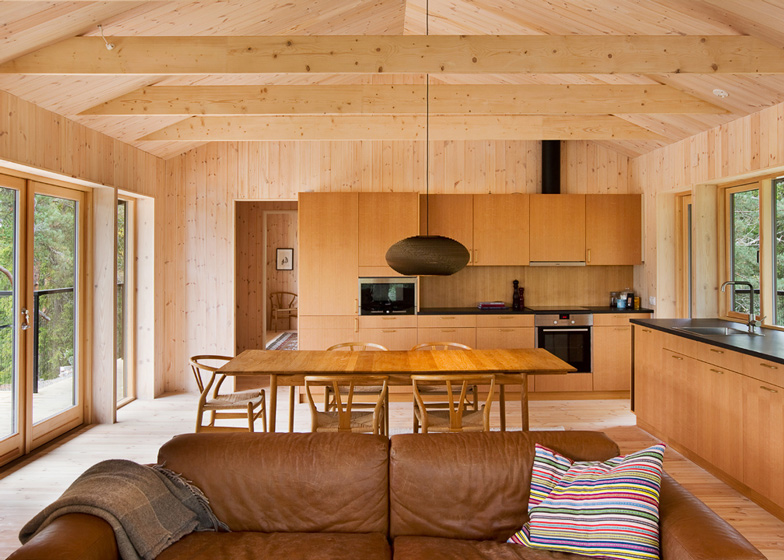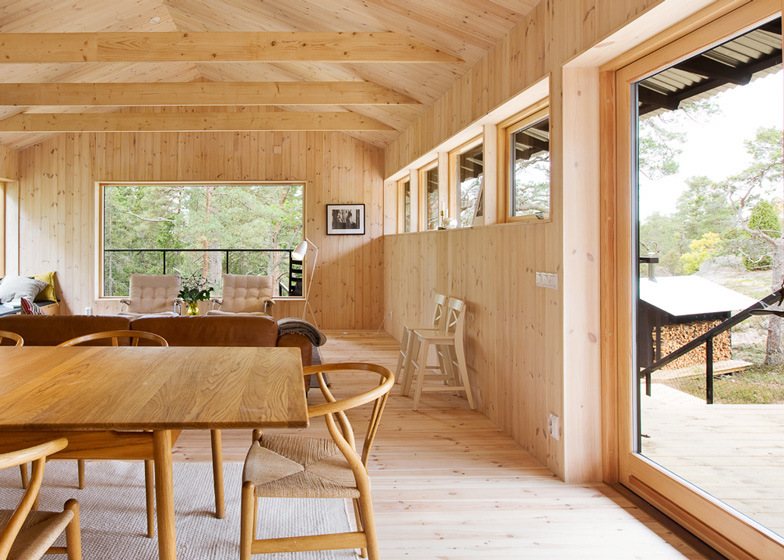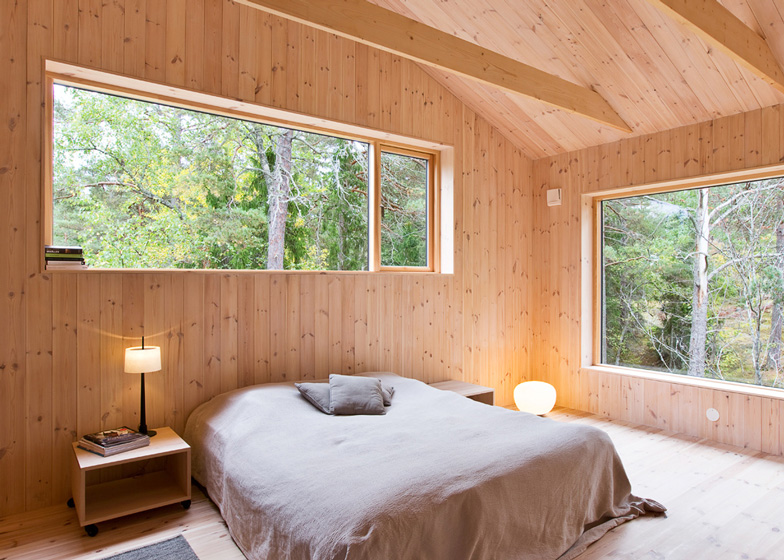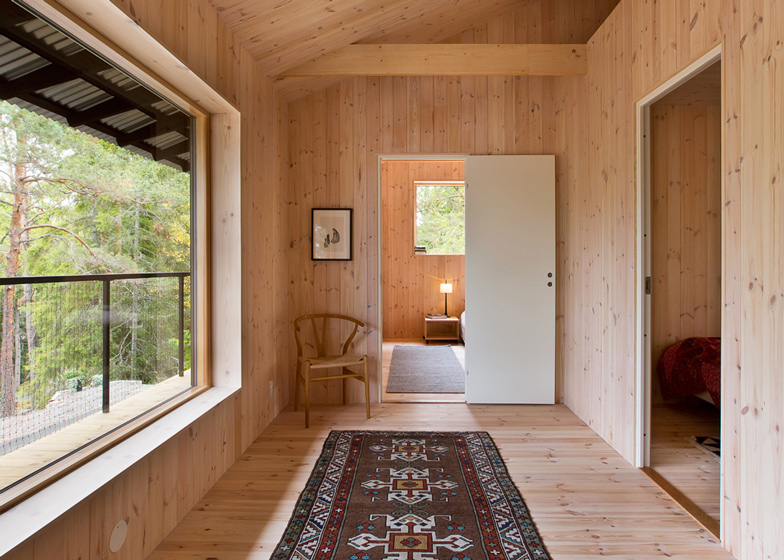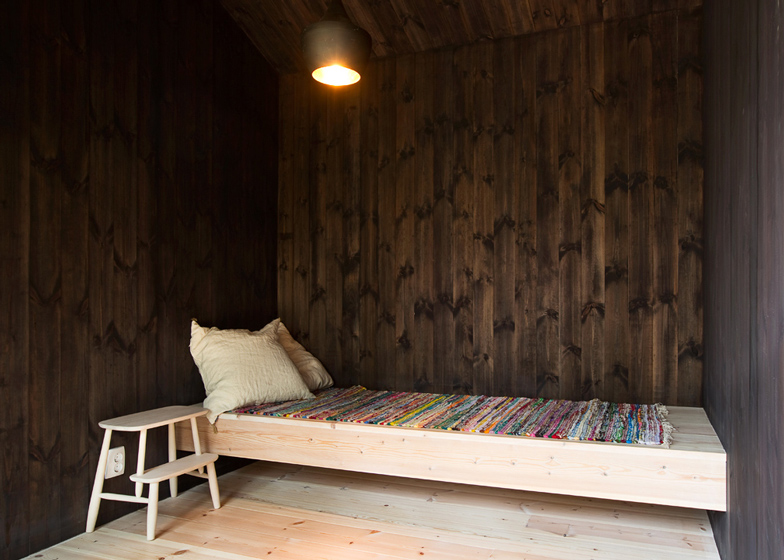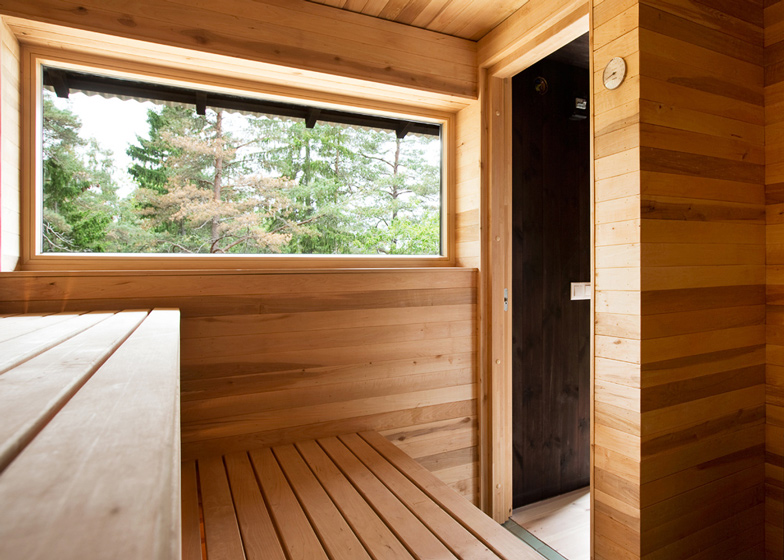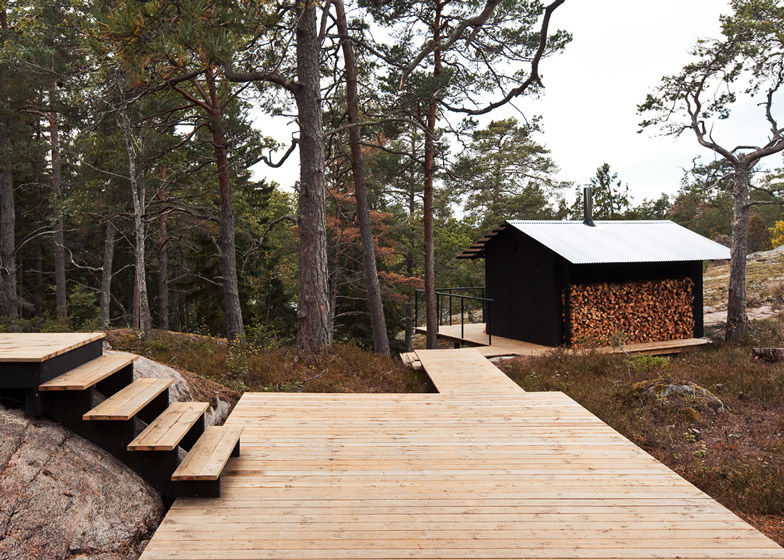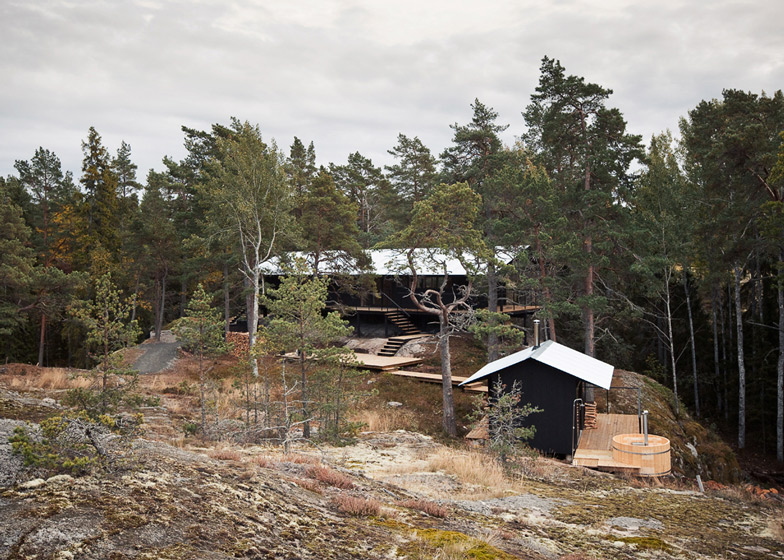This wooden holiday house by Swedish studio Max Holst Arkitektkontor is perched on the edge of a gorge in Vindö, an island on the Stockholm archipelago (+ slideshow).
Working for Swedish developer Strömma Projekt, Max Holst Arkitektkontor designed the single-storey house on a series of black concrete plinths, elevating it above the gorge so that surrounding trees appear at eye level from the windows.
The dark timber exterior is surrounded by a sheltered deck, leading into a combined kitchen, living and dining room, while two children's bedrooms are connected to a playroom and sit adjacent to a bathroom and sauna.
Large windows offer views out into the woodland from all four sides of the house, while wooden ceiling beams are left exposed beneath the gabled rooftops.
Timber lines the walls, ceilings and floors throughout the house, complemented by wooden furniture and kitchen units.
"The material palette is simple and essentially rooted in local building traditions," said the architects.
Wooden steps lead down to an exposed deck beneath the main house, then onwards to a small shed stacked with firewood at the end of a narrow walkway.
Other holiday homes we've featured include a cluster of holiday apartments around terraces connected by small alleys, a tiny wooden cabin containing a sauna and bedroom and a riverside house raised on tree trunks to prevent flooding.
See more holiday homes »
See more Swedish architecture and design »
Photography is by Hannes Söderlund.
Here's some information from the architects:
Holiday house Vindö
The site is located on Vindö, an island in the Stockholm archipelago, Sweden. Upon first glance the site appears a fairly typical archipelago plot with granite outcrops, pine trees and blueberry bushes but soon reveals it’s unusual dramatic topography presenting an exciting opportunity to the architect Max Holst as well as for the developer Strömma Projekt.
The building stands on a ridge bordering a 10 m deep drop into a gorge. In which a number of magnificent trees, mostly pine but also some hardwood grow. On the sheltered terrace and in the house one finds the tops of these trees at eye level.
The orientation of the ridge dictates the building’s form and the spatial subdivisions and the spatial emphasis is on the large living, dining and kitchen space, which leads onto to a large sheltered terrace towards south/east.
Children's bedrooms are of a modest scale with a master bedroom located to the east. As a buffer between the living and sleeping areas, a bathroom and is located.
The hallway acts as a spacious playroom to the neighbouring the children’s rooms. The material palette is simple and essentially rooted in local building traditions.
Tectonically, the house is composed on black concrete plinths and exposed timber rafters highlight the repetition of a 120mm module on which the construction is based. The only setback from this strict systematisation occurs in the bathroom where the room is simply not suited for these measurements.
Room dimensions fell easily into place, becoming an exercise in creating dynamic spaces with a constant connection to the sky and surrounding forest, all within this framework.

